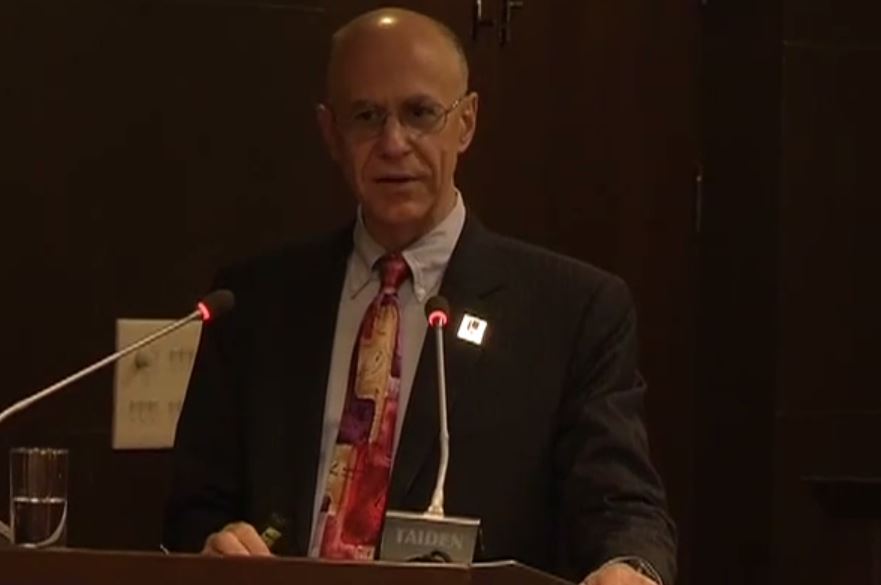Prof. Robert Klonoff to Speak in Turkey

Bob Klonoff, Jordan D. Schnitzer Professor of Law and Former Dean, has authored an article on why class actions have not gained traction outside the US, which he presented in late May in Istanbul at the Congress of the International Association of Procedural Law (IAPL). The IAPL is an organization of distinguished civil procedure professors from around the world.
The highlight of IAPL’s work is a World Congress, which is held once every four years to focus on a major issue. This year’s World Congress in Istanbul will focus on “Effective Judicial Relief and Remedies in an Age of Austerity.” Prior to the conference, there was a competitive process for the submission and presentation of papers. An IAPL Committee reviews all of the papers and makes selections. Klonoff’s paper was selected as one of a small number of papers that will be presented at the Congress. Klonoff is the only U.S. professor who was selected to present a paper. The paper will be published in the IAPL’s Law Journal.
Klonoff’s article focuses on the disconnect between law and practice in the area of class actions outside the U.S. Over the past several years, numerous countries have adopted (usually by legislation) a class action rule. Nonetheless, while thousands of class actions are brought every year in the US, very few class actions are brought outside the US. Klonoff’s paper, attempts to explain why this is so. He offers three reasons:
1. In the U.S., most class actions are opt out (meaning that class members are bound unless they affirmatively take action). In many countries, class actions are “opt in” actions, meaning that a person is not bound unless he/she affirmatively opts in. Historically, few people opt out, and opt in classes are usually quite small. Thus, in many countries it is impossible to get global peace.
2. In the U.S., class members don’t have to pay fees and costs unless the case is successful. In most other countries, contingent fee arrangements are deemed unethical and unlawful. It is virtually impossible to find class members who have enough of a stake to be willing to fund class actions and take the risk that they will be on the line for lots of money – even if the case fails.
3. In the U.S., the federal panel known as the Judicial Panel on Multidistrict Litigation (MDL) has the power to consolidate all federal cases raising similar issues for pretrial management. Virtually no other country has a procedure similar to our MDL procedure, meaning that in most countries it is extremely difficult to prevent inconsistent adjudications.
Read the article, published in Bloomberg BNA Class Action Litigation Report, May 2015.
For more information on the IAPL World Congress, visit http://www.iapl2015.org/p/program
email lclawsa@lclark.edu
voice 503-768-6716
Contact Student Affairs
International Law
Lewis & Clark Law School
10101 S. Terwilliger Boulevard MSC
Portland OR 97219
More Stories

2024 Davis Wright Tremaine International Law Writing Competition Winners Announced
The International Law Writing Award, funded by Davis Wright Tremaine LLP, grants $2,500 and $1,000 stipends for the best and second-best international law research paper written by a Lewis & Clark JD student. This year, Kelsey Chapman-Sutton is the first-place winner and Beth Sethi is the second-place recipient.

Prof. Benjamin Advocates to Establish State Obligations re: Climate Change
Professor Lisa Benjamin co-authored briefs to the International Court of Justice and the International Tribunal for the Law of the Sea to establish state obligations around climate change as part of the International Union for the Conservation of Nature. Clinic students supported the effort.

Professor Helps Facilitate Workshop Series with Ukrainian Legal Clinics
Professor Susan Felstiner participates in a groundbreaking US-Ukrainian Clinicians Workshop Series, fostering collaboration and skill-building to empower legal education in Ukraine.

International Law Research Fellow Named
The International Law Committee has selected 3L Kelsey Chapman-Sutton as the International Law Research Fellow for the 2023-24 school year.